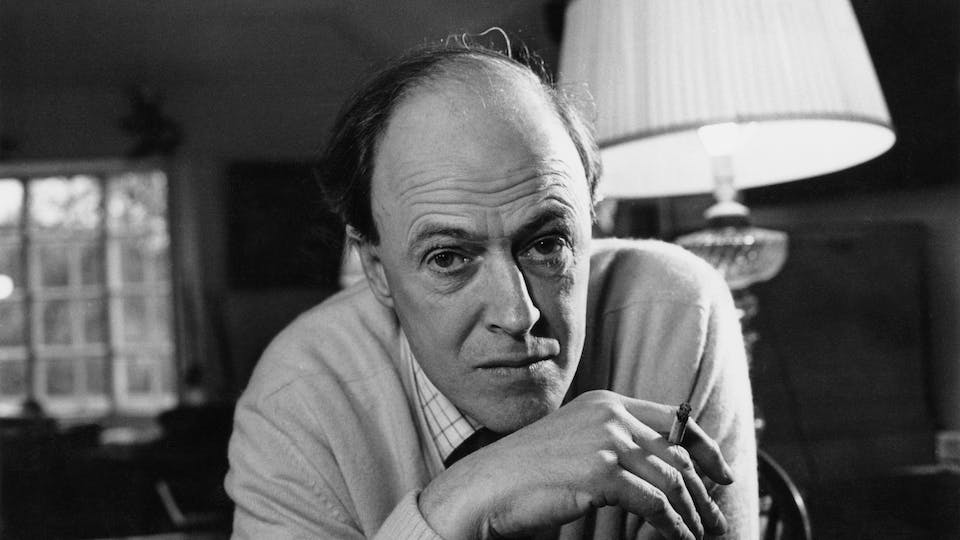 When I first read the headline “Roald Dahl books rewritten to remove offensive language” this week, my first reaction was an eye roll.
When I first read the headline “Roald Dahl books rewritten to remove offensive language” this week, my first reaction was an eye roll.
If you’ve been reading this column for some time, that should come as no surprise.
Ironically, I’d just finished watching an episode of ‘The Adventures of Ozzie and Harriet’ (yes, I’m a little odd) which was filmed in 1950s America, a simpler time in many ways but a world away from the TV we see today.
Very little of ‘Ozzie and Harriet’ would survive the “sensitivity monitors” that have devoured Dahl’s books, which in some ways is part of the charm of re-visiting it every now and again.
It is a reminder that none of this stuff was created to cause offence, in fact far from it – Ozzie and Harriet even slept in separate single beds, despite also being married in real life! It is simply a reflection of the time, again part of the charm.
‘Ozzie and Harriet’ doesn’t deserve to be pulled off YouTube nor does it need a warning at the start of the show to tell us it was filmed 70-odd years ago so we should be on alert for a sexist quip. That stuff, which I note is on a whole bunch of Disney classics, is just not necessary.
But back to Dahl’s books.
I immediately started screenshotting smart comments on social media, reading opinion pieces, doing a little cancel culture research and got ready to fire up the fingers to tap-out 600-odd words on why we should leave the books as they were originally written.

But then I had to admit something to myself: I could not only see the publisher’s point, but deep down I agreed with it.
Don’t get me wrong, I still have a slightly uncomfortable feeling about people in 2023 changing the words of an author who can’t speak for himself and died more than 30 years ago.
But very little evolves more in our world than language does.
Words are powerful; they are the most emotive, most ferocious, most important communication tools we have.
Describing women as “fearfully ugly”, “fat” and having “horse-shaped faces” may have been generally acceptable when they were written, but not for a moment would we choose to use them in children’s books today.
And in a world in which schoolyard and social media bullying has become such a focus, should we really be giving ammunition to children’s vocabulary when it comes to their first engagement with literature?
We’re not changing a newspaper article here, or a work of non-fiction. Nor are we pulling old copies of Dahl’s books from library shelves, never to be seen again.
We’re simply making some adjustments in modern re-prints of Dahl’s work.
If anything, we should be celebrating that his stories still resonate with kids so many decades after which they were written.
And the stories themselves remain. Nobody is suggesting we alter the meaning of Dahl’s work, or the ‘out there’ concepts some of his books offer kids.
For many children, a Dahl book is their first encounter outside of your “cute dog goes to the zoo” type stories that all parents have read a thousand or so times to their kids at bed time in their first years of life.
Dahl’s books promote imagination, they promote out-of-the-box thinking and escape from the black and white.
They still do that even if Mrs Twist is just “beastly” and not “ugly and beastly”. After all, beauty is in the eye of the beholder, is it not?
There are some changes that probably play into the woke culture of our modern times, like changing the Oompa Loompas from “small men” to “small people”. Surely, they could still be men? What’s offensive about being a man?
But overall, these changes are actually about the opposite of cancel culture: they’re about ensuring the core of the stories remain in print for future generations, rather than banished and replaced by boring, mundane stories where everyone is beautiful and nobody is nasty.
The latest editions of Roald Dahl’s children’s books have been edited to remove language which could be deemed offensive.
Peter Hitchens: “We now live under what is a effectively a marshmallow totalitarianism, there are things you can no longer say.”@iromg | @clarkemicah pic.twitter.com/fzE34fSWCr
— TalkTV (@TalkTV) February 20, 2023
Who knows what Dahl would have thought, but one doubts he’d be rolling in his grave. In fact, he changed a few lines in books himself over the years, as society progressed and the world changed.
Any writer, myself included, looks back at work from the past and has a little cringe here and there. In the world of words, things change dramatically and quickly.
Even here at the Weekender, we made a subtle but important change just last month. You may have noticed we’ve dropped honorifics after someone is first introduced, so Mr Smith is now just Smith, and Dr Clarke is now just Clarke.
No, it’s not about succumbing to wokeism – but the quest to be accurate means that identifying people is not as simple as it once was, and you must adapt.
And while we don’t re-print much here at the Weekender, nor will we alter old stories to reflect our policy change, if we did re-run a history piece, or something like that, then yes – we’d update the honorifics. And if we’d called someone fat and ugly, however unlikely, we’d probably alter that too.
We can bemoan the changing of things we grew up with, we can claim we were tougher back then and that they were the good old days, or we can accept that if the chance exists, our kids deserve a better approach.
It won’t always be the case that altering the past is better for the future, but when it comes to Dahl’s books, a new chapter ain’t so bad.

Troy Dodds
Troy Dodds is the Weekender's Managing Editor and Breaking News Reporter. He has more than 20 years experience as a journalist, working with some of Australia's leading media organisations. In 2023, he was named Editor of the Year at the Mumbrella Publish Awards.
